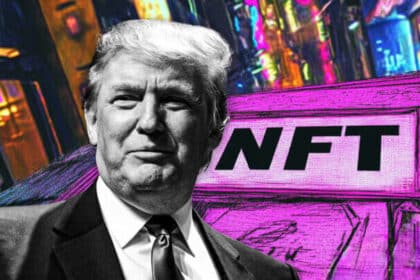The U.S. Senate Committee on Banking, Housing, and Urban Affairs has released its legislative priorities for the 119th Congress. Newly minted Chairman Tim Scott, appointed on Jan. 3, is determined to bring financial inclusion amid gaps in crypto regulation. His agenda involves making a clean framework for locating that originates from digital resources, motivating advancement, and reinforcing monetary security.
Senate Plans Clear Rules for Crypto Regulation
The committee’s plans aim to create a solid regulatory framework around cryptocurrencies that had no clear guidance in the past. However, Scott had harsh words for current oversight, attacking the Securities and Exchange Commission (SEC) under its current leadership for not sufficiently clarifying what is wrong and how Americans should respond. He says the regulatory uncertainty has forced other projects overseas, and the lack of competition has hurt the U.S. cryptocurrency sector.

To combat this trend, the committee will work on a framework for digital asset trading and custody that is set in oversight and gives flexibility. The idea is to boost consumer protection and ensure the lender is in compliance with other financial regulations, including the Bank Secrecy Act. Moreover, Scott’s strategy entails creating a setting that allows the development of technological innovations like stablecoins, an example of a technology whose potential can widen financial inclusion.
Scott’s initiative aimed to maintain its boom, address dangers related to novel cryptocurrencies and defend innovation. By formulating policies made to order, he seeks to encourage digital asset projects to return to the U.S. and boost a flourishing domestic market. These policies are supportive of wider aims, too, of bolstering economic security and ensuring continued leadership in financial technologies.
Fraud Protection and Innovation Key to Crypto Plan
The committee intends to strike a balance when pursuing these goals between strict oversight and promoting innovation. Scott said responsible regulation is crucial to supporting a secure and competitive digital asset sector. Clearer pathways for the industry stakeholders would reduce uncertainties on which economic growth will be supported.
The committee, though, also recognizes the risks associated with digital assets, such as fraud and misuse. Measures such as consumer education and protection will be used to address these challenges. The framework aims to increase trust in the digital financial ecosystem through the integration of safeguards.
Scott’s agenda promotes innovation while retaining regulatory flexibility. He believes this approach will strengthen the U.S. position in the global cryptocurrency landscape. Additionally, digital assets shall be integrated into core national security frameworks to positively impact economic stability.
Committee Targets Barriers in the US Financial System
But Scott’s priorities go beyond cryptocurrency; He wants to expand financial inclusion and access to capital nationwide. The committee seeks to overcome structural problems in the financial system that prevent many Americans from accessing economic opportunities. The agenda does this by promoting innovative financial products that lower barriers to and promote equity in a more equitable system.

Scott also plans to couple digital asset oversight with national security objectives. He believes that responsible financial technology innovation can create economic stability and solidify the U.S.’s global leadership position. The focus will be on aligning regulations with international standards to avoid misuse and promote collaboration.
As the committee pushes its agenda forward, it will work with different stakeholders to achieve consensus around solutions that work. As Scott endeavors to keep policies honest, transparent and accountable, he attempts to make them also benefit people and businesses. They also signal an effort to create a competitive and secure financial environment.
FAQs
What are the legislative priorities of the U.S. Senate Committee on Banking for the 119th Congress?
The committee’s priorities include advancing financial inclusion, addressing cryptocurrency regulation gaps, and promoting innovation in financial technologies.
Who is the current Chairman of the U.S. Senate Committee on Banking, Housing, and Urban Affairs?
Senator Tim Scott is the committee’s current Chairman, having assumed leadership on January 3.
What is the main focus of the committee’s cryptocurrency agenda?
The committee aims to establish a clear regulatory framework for trading and custody of digital assets while promoting innovation.






























